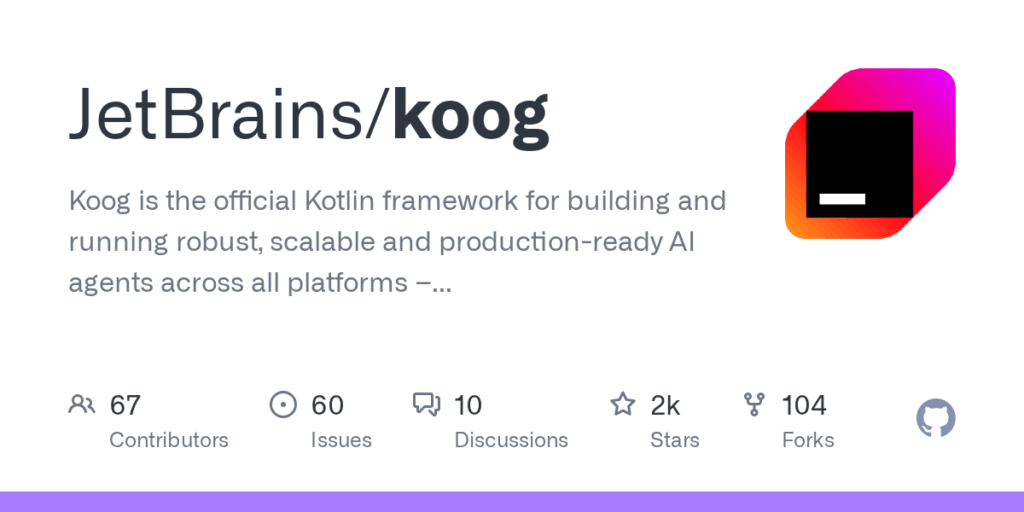Features
Koog offers a pure Kotlin implementation so agents are written in natural Kotlin idioms. It integrates with MCP for enhanced model management and supports vector embeddings for retrieval and semantic search. You can create custom tools for external systems and use pre-built components to accelerate development. The framework includes intelligent history compression strategies to optimize token usage, a streaming API with real-time response processing and parallel tool calls, persistent agent memory for knowledge retention, and comprehensive tracing for debugging and monitoring executions. Complex agent behaviors can be modeled with flexible graph-based workflows. The architecture is modular and composable, designed to scale from simple prototypes to larger applications, and it is multiplatform across JVM, JS and WasmJS. Supported LLM providers include Google, OpenAI, Anthropic, OpenRouter and Ollama.
Use Cases
Koog helps developers deliver agentic applications faster by providing an end-to-end Kotlin framework with production-focused features. Its pure Kotlin design reduces impedance between application code and agent logic, while ready-to-use components and a modular feature system shorten implementation time. Embeddings and memory support enable retrieval-augmented behavior and cross-session knowledge retention. Streaming and parallel tool calls allow real-time workflows and lower latency in multi-step processes. Tracing and history compression improve observability and cost efficiency when using large models. The project is distributed via Maven Central as ai.koog:koog-agents (version 0.3.0 shown) and integrates into Gradle and Maven builds. It supports JVM, JS and WasmJS targets and requires JDK 17 or higher on the JVM, making it practical for teams building scalable, cross-platform agent solutions.








